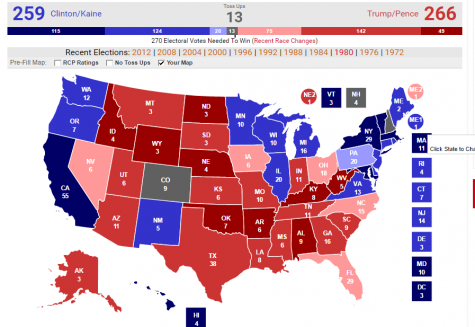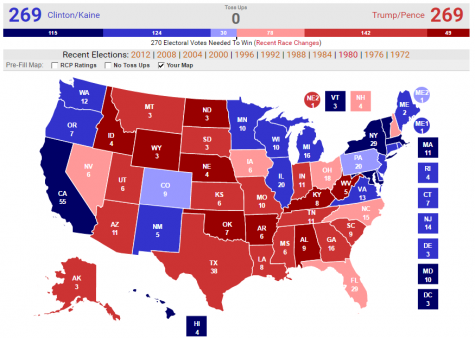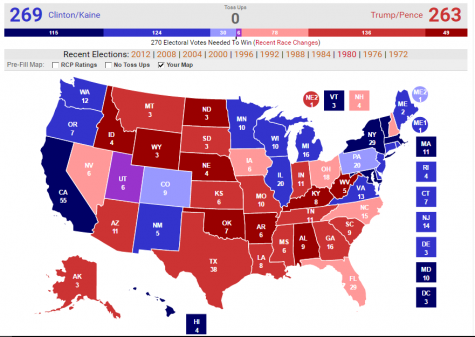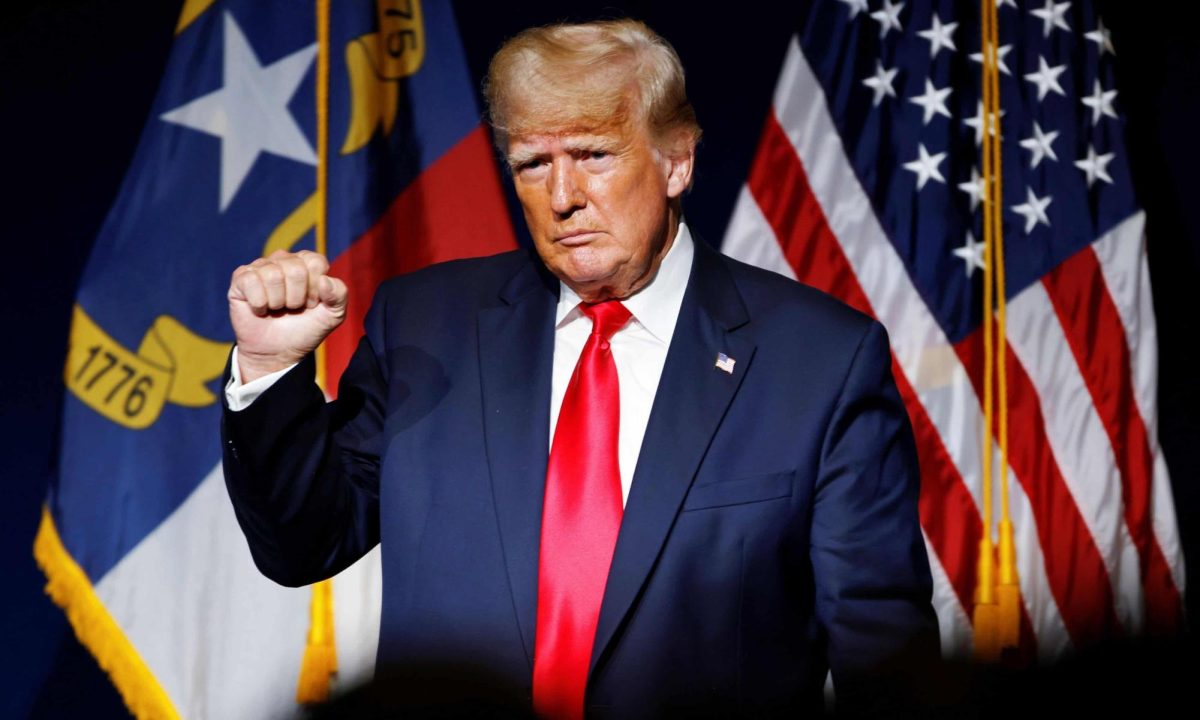The Most Bizarre Possible Election Outcomes
October 31, 2016
As if the nomination of Donald Trump weren’t bizarre enough, let’s take a look at the list of some of the strangest conceivable electoral outcomes that are hidden in the original Constitution and in the 12th and 20th Amendments.
- So right now the math might look tough for Donald Trump, but he’s been on the comeback path even before news hit that the FBI was involving itself in Clinton’s email scandal all over again. With recent polls putting Trump ahead in Ohio, Iowa, and Arizona, and drawing even or close in Florida, Nevada, and North Carolina, the map looks something like this right now: (I’ll get to the point right after, I promise)

What could happen is the following, where Clinton takes Colorado, and Trump takes New Hampshire but loses Maine’s 2nd Congressional District:

In this scenario, there is an electoral tie in the electoral college, meaning the question of who becomes President is sent over to the House of Representatives, which has a sizable Republican majority. - In this scenario, Evan McMullin, an independent candidate who has a nonexistent chance at winning the popular vote, wins Utah. McMullin is a Utah-born Mormon who polls exceptionally well in the state, which never embraced Trump (Trump lost the primary there by large margins). McMullin is only 2 or 3 points behind Trump in select polls, though Trump has a 70%+ chance of winning the state.

But that’s not all. A McMullin victory would mean that, again, the race goes into the House of Representatives, but because McMullin won electoral votes, certain provisions of the 20th amendment kick in. See, the 20th Amendment stipulates that the top 3 vote getting candidates are put into the House to be selected as President. - Trump, despite being the Republican nominee, is unpopular among Congressional, “establishment” Republicans, and has at times openly feuded with him, and one could envision House Republicans signing on to the traditionally conservative McMullin bid. It is feasible that there will be no majority in the House of Representatives either, which makes the race even more interesting. According to the 20th Amendment again, there are rules for what happens when there’s no majority in the House either, and that’s where it gets really interesting. See, the often overlooked part of Presidential tie-breaking is the position of Vice President. The top two Vice-Presidential vote getting candidates are put into the Senate for selection to be President. If Republicans keep control of the Senate, Mike Pence would be selected as VP. Back to the House with no majority, if there remains no majority by inauguration day, the Vice President becomes President, meaning Mike Pence (or Tim Kaine) could become President despite losing the nomination, the popular vote, the House, and the electoral college, at least until the House picks a President.





